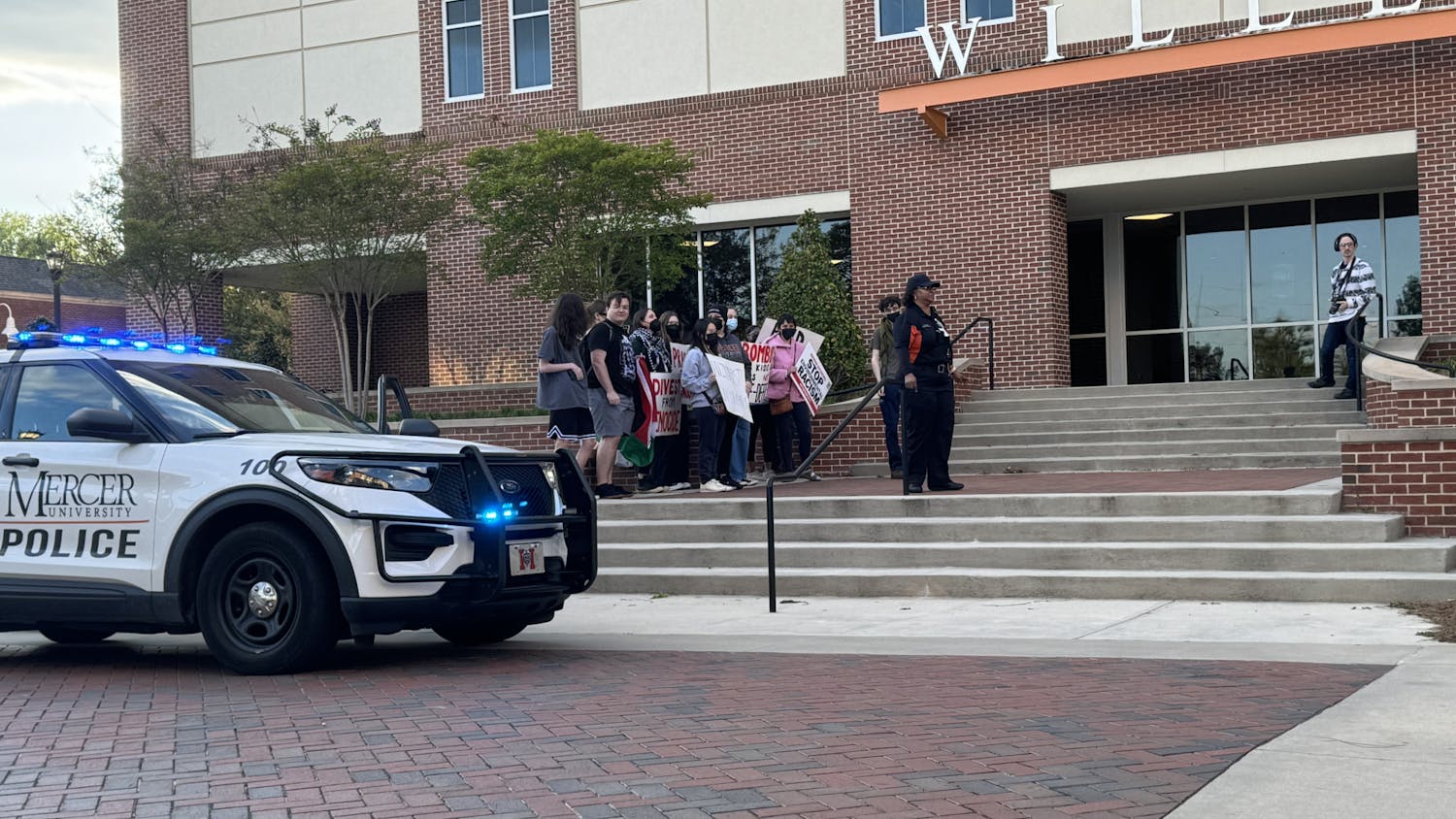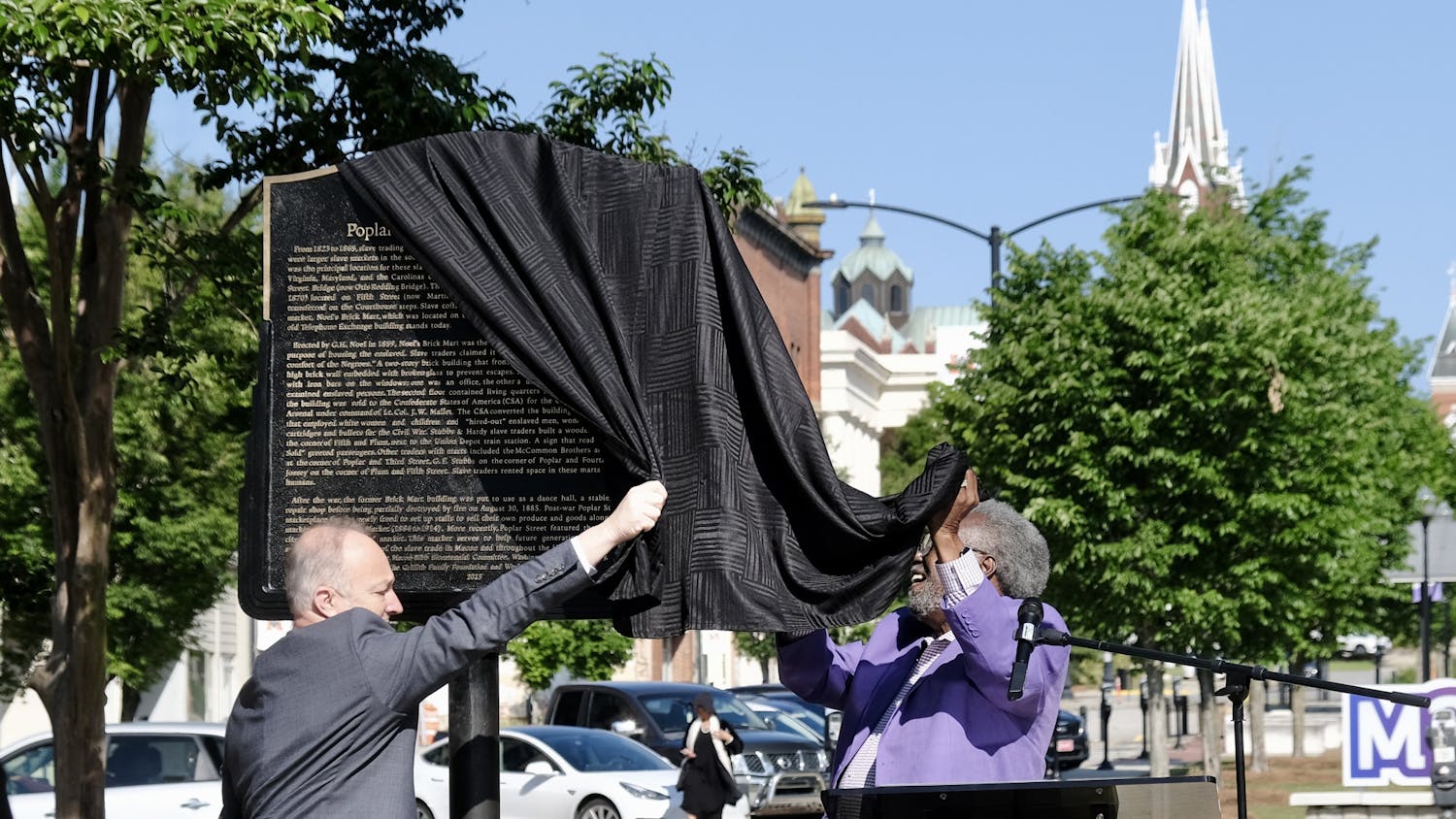Mercer University began surveillance testing on the Macon campus for undergraduate students on Sept. 1. The university previously began this testing procedure in graduate and professional programs in Macon and Atlanta on Aug. 25.
The surveillance testing initiative aims to gain more information about COVID-19 on Mercer’s campus by randomly testing undergraduate students on the Macon campus.
Surveillance testing is one of Mercer’s efforts to slow the spread of the coronavirus, Interim Dean of Graduate Studies Keith E. Howard said.
“Mercer has a number of initiatives geared at keeping the campus safe and ensuring that we're able to have a safe and successful semester for students, faculty and staff,” Howard said. “Surveillance testing is just one small initiative part of that overall initiative.”
What is surveillance testing?
The term “surveillance testing” might cause some anxiety, but it is important to understand what it really means.
According to the Centers for Disease Control and Prevention, surveillance testing “includes ongoing systematic activities, including collection, analysis and interpretation of health-related data that are essential to planning, implementing and evaluating public health practice.”
In other words, Mercer plans to use this method of testing to monitor the community at large and analyze data relating to the spread of coronavirus.
Howard said he thinks it is more accurate to refer to this method as asymptomatic testing. “It’s not surveilling the individual,” Howard said. “It gives us an additional piece of information about how safe the campus is at this moment.”
Other schools in Georgia and around the country have also established surveillance testing procedures, including the University of Georgia and Georgia Tech.
What if I’m selected?In the event that a student is selected for surveillance testing, they will receive a message sent to their Mercer email address. The email will instruct them on how to proceed with scheduling their test. The surveillance testing procedure is voluntary, so students can decline to participate.
Additionally, according to the Provost’s office, students may choose to be tested at any time, for any reason without being selected for surveillance testing.
Testing costs are covered by insurance, and students do not pay a co-pay or receive a bill for the test.
After the test is conducted, students may continue going to class as normal. Tests typically come back between two to three business days.
If the tested student is negative, they will receive an email from Mercer Medicine notifying them of their results.
What happens if I’m positive?Positive students will receive a phone call from Mercer Medicine informing them of their results, and they will be instructed of their next steps.
A Mercer staff member will also be notified. They will help the positive student make food and housing arrangements, as well as speak to the roommates of the student.
At that point, the student will be in an isolation space for 10 days. Immunosuppressed people must remain in isolation for 20 days. Vice Provost Kelly Reffitt said that there are both on and off-campus spaces for isolation.
“We have worked hard to make sure that students feel comfortable in isolation. It's not punitive at all. We don't want anybody to feel like they're being punished,” Reffitt said. “We just want to protect you if you're positive and protect the people around you.”
In addition to assistance relating to housing and food, students will also be given accommodations for their academics. Faculty have been given training on how to best aid students who are isolating due to coronavirus this semester.
“These absences are absolutely excused,” Howard said. “But we also want to provide the opportunity for our students to not get behind. And that's why (faculty) have been very diligent in terms of providing access to the learning materials and access to what's going on within the course.”
At the end of the isolation period, Mercer Medicine will evaluate whether the student needs to remain in isolation based on their symptoms. After at least one day without fever and with improvement in respiratory symptoms, students can complete their isolation.
Going forwardThe Provost’s office did not set an end date for surveillance testing. Howard did note, however, that Mercer’s campus will continue to be safe if people continue to be mindful of the safety guidelines.
“I know time tends to make us a little bit more comfortable,” he said. “When you get more comfortable, you tend to put down your guard, but I'm very hopeful that we will keep it at the forefront of our mind that we are continuing to deal with a pandemic situation, and that we can do these very simple things to keep each other safe.”
Members of the Mercer community are directed to call Mercer Medicine at (478) 301-4111 or the Student Health Center 24/7 hotline at (478) 301-7425 if they begin displaying symptoms. Students who are enrolled in a course where a student has tested positive will receive an email notifying them of their risk.
Mary Helene Hall ‘23 is a journalism and women’s and gender studies student who has worked for The Cluster throughout her time at Mercer. She has held internships at The Atlanta Journal-Constitution and AL.com, where she covered a variety of topics including politics, crime and culture.





